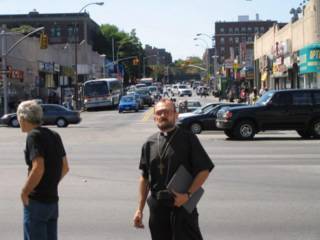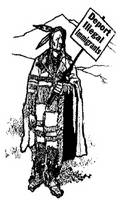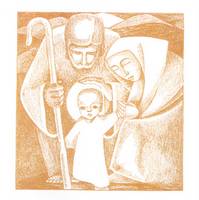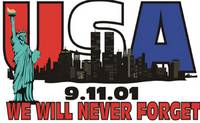A Lenten Parish RECIPE: "Padre's Polish Bleenies"
 Lent traditionally includes a humble and yet nourishing diet. So I thought I'd share one of my own favorite ethnic recipes with you. (And it's not just for Shrove Tuesday dinners, Fridays or days of fast and/or abstinence.) This one is highly sought for parish fund raisers. Great for bazaars, carnivals.fairs, BINGO or any benefit... You'll have them lined up and eating out of your hand -- literally.
Lent traditionally includes a humble and yet nourishing diet. So I thought I'd share one of my own favorite ethnic recipes with you. (And it's not just for Shrove Tuesday dinners, Fridays or days of fast and/or abstinence.) This one is highly sought for parish fund raisers. Great for bazaars, carnivals.fairs, BINGO or any benefit... You'll have them lined up and eating out of your hand -- literally.Years ago when I served my first parish assignment in the Anthracite coal region within the Appalachian mountains of rural Pennsylvania, deep down in Schuylkill County at St. Jude the Apostle AOCC* Pro-Cathedral in Shenandoah, Pa. (the last "old west" town in America with wooden sidewalks) -- I used to cook and serve these "Padre's Polish Bleenies" in my booth at our parish street fairs. Of all our many vendors and attractions, this was the most popular there and our biggest seller. They flocked there in droves and I was often over-run. It helped that the population of our small town was and is mostly Polish/Lithuanian just like me. These are a year round staple of our diet and we eat them often.
[This historical community is where social injustice first came to the forefront of our American conscience. It's where the legendary Irish immigrant Pennsylvania coal-region miners, the fictional terrorist organization and reputedly innocent "Molly McGuires"**, were hung on "Black Thursday", June 21, 1877 -- and the nooses atop the original gallows still swing in the winds atop the old Pottsville County Jail.]
Although I used to make these in mass production, I'll keep this concoction small so that you can sample it in your own kitchen. Try it -- you'll like it! Trust me. Before I was a priest I also worked as a cook for almost 20 years. A lot of prayer and meditations also goes into my recipies. That's why the self-imposed quiet and solitude of MY prep work kitchen is one of my favorite hibernaculums (where women, children, other gays and pets are not allowed.)
In East Europe, Poland and Russia, bleenies (or "blinis") are regular flour pancakes and are served with smoked salmon or caviar. In the mountains of the Pennsylvania Anthracite Coal Region, Schuylkill County, a bleenie is a thick ethnic potato pancake — eaten by hand. We also called these “Polish soul food.” Few people make them at home since they can create a huge greasy mess in your kitchen (and your whole house).*** That's why they are very popular at block parties and church bazaars. Bleenie lines have been known to circle halfway around the block. The secret draw is not only in the tasty recipe, but knowing when to "flip" the bleenie. The "Flipping the bleenie" gene is found in the DNA of some but not all Polish/Lithuanians. This careful***, timely flipping ensured the highly desirable uniform crackly appearance on each side of the bleenie.
"PADRE'S POLISH BLEENIES"
Peel and grate potatoes by hand (it’s not a sin to cheat with a food processor, but they won't taste as good.) Mix all ingredients together. Add salt to taste after cooking. Spoon mixture into the hot oil (do NOT put too much oil in the pan***; just enough to cover the bleenies as they fry). Flatten pancakes with wooden spoon. Deep Fry in cast-iron pan. When they are lightly browned on one side, gently turn bleenies to fry the other side. (Should be brown and crisp outside and gold and soft in the middle.) Drain over brown paper bags.
Serve with salt or vinegar. Others smear on some plum, grape or strawberry jam. Good with sour cream, pork & beans, Mrs. T's Pierogies and Yuengling Lager beer (also made here in America's oldest brewery). Present with paper napkins.
"SECRET" HINTS: Drain and press potatoes through a colander to make thicker & firmer. Add a little Yuengling Lager beer to batter to make lighter, yeastier, crepes-like fritters.
-- 8 medium potatoes — (hand grate on fine grater!)
-- 2 large onions — hand grated
-- 1 bunch scallions — finely chopped
-- 2 Lg. eggs
-- 1 tsp. Kosher Salt - or Seasoned Celery Salt - into batter
-- 1/2 tsp. coarse blk. pepper
-- 4 level tbsp. flour
-- 2 dashes of Allspice
OPTIONAL “SECRET” HINTS:
-- head of olive-oiled, roasted garlic cloves (mashed)
-- 4 tablespoons Hellmann’s Mayo — heavily sprinkled w/dill weed
-- 1/4 cup Grated Parmesan-Romano Cheese
* American Orthodox Catholic Church, a.k.a. The Holy Eastern Orthodox Catholic and Apostolic Church in North America, Archdiocese of Pennsylvania -- a biritual autocephalous jurisdiction, established in North America by the Moscow Patriarchiate since 1927, for which I was ordained and served as archpriest in several parishes and elsewhere for more than a decade. A cavernous net of tunnels leading to the secret hide-out caves of the infamous "Molly McGuires" runs under the cellar of our old rectory in Shenandoah and through each house. It caused a tilting subsidence of all the connecting homes in the neighborhood.
** HISTORY: From the late 1860s to the mid 1870s the rebellious coal miners, members of the Ancient Order of Hibernians fraternal organization, were accused of running a secret criminal society called the "Molly McGuires". The term comes from Irish cattle rustlers and rebels who sometimes dressed as women as a form of disguise. The real Molly Maguire was a peasant girl in 17th century Ireland, who supposedly led an uprising against rent collectors. The Mollies engaged in a violent confrontation with Pennsylvania mining companies. Some saw them as Robin Hoods defending the rights of the hapless Irish coal miners. Others looked at them as little better than thugs. The Molly McGuires were blamed for the murder of several mine bosses during the coal boom of the latter half of the nineteenth century. The death toll grew steadily for years until Franklin B. Gowen, president of the Philadelphia and Reading Railroad, hired a Pinkerton detective to infiltrate the society and gather the evidence needed to execute the ringleaders. (The Pinkertons have a violent history. In the late 1800s and early 1900s, Pinkerton guards were employed by large manufacturing companies as anti-union strikebreakers. They were very effective at this task.) Detective James McParlen, hired by the mining interests, joined the Ancient Order of Hibernians and later testified against the Mollies at their trial. Nine Mollies were executed on June 21, 1877, three in Carbon County, nine in Schuylkill County. Twenty miners were hung in all. Jack Kehoe, accused of being the ringleader of the Mollies, was hanged in Schuylkill County Prison on Dec. 18, 1878. The Pinkerton agent committed suicide 30 years after the hangings. In 1979, then-Pennsylvania Governor Milton Shapp issued a posthumous pardon to Jack Kehoe, the supposed mastermind of the Mollies.
--- ("Making Sense of the Molly Mcguires" by Kevin Kenny, Oxford Univ. Press, 1998.)
There was a sleeper of a historically accurate 1970 movie called "The Molly Maguires" which was filmed in this northeastern Pennsylvania area. It's about the 1870's saga of these coal towns and the plight of Irish/Welsh immigrants and less about labor relations. The essential core conflict between the miner owners and the workers is not stressed enough here. In the original church scene, Sean Connery stands up during the sermon when the venerable priest preaches about violence, arguing with His Reverence about the violence committed against the workers in mines? He challenges the parish priest in a harsh verbal altercation back and forth from the pulpit to the pews. It was one of the first movies to expose the hypocrisy of social injustice in the Roman Catholic Church. The current DVD distribution is missing this scene from the original theatrical distribution. Rent it anyway. Richard Harris is the main actor. The cinematography is beautiful. Henry Mancini, who was raised in this Pa. area, did the musical score. I mostly recall the scene where a door frame became an impromptu confessional booth.Mrs. T's Pierogies" (named after Mrs. Mary Twardzik's original recipe who launched the business in 1952) are made and they were one of our biggest parish suppliers and benefactors. They are also the town's biggest employer and are run by her grandsons Ted Jr., Tim and Tom. They produce 8.5 million pierogies per week in ten different varieties and are sold nationally. Thanks for your generosity, guys.
Shenandoah is also where "
*** Warning: When cooking these thick potato pancakes, be very careful with the grease! During the Depression, my Confirmation sponsor and late Uncle Felix burned the whole house down in Orange, N.J. while making these bleenies for the family as a kid. My grand mother, Babci (Bob-shee), almost killed their eldest son when she returned home to the still smoking ruins. She, my grand-father and eight kids were homeless for months. Felix Tyminski later married a Polish girl from this Pennsylvania coal region. Aunt Carol whose family were also coal miners, knew how to cook these bleenies and all the Polish recipes (I'll share more of them with you later). May their souls and all our faithful departed rest in peace.































































0 Comments:
Post a Comment
<< Home